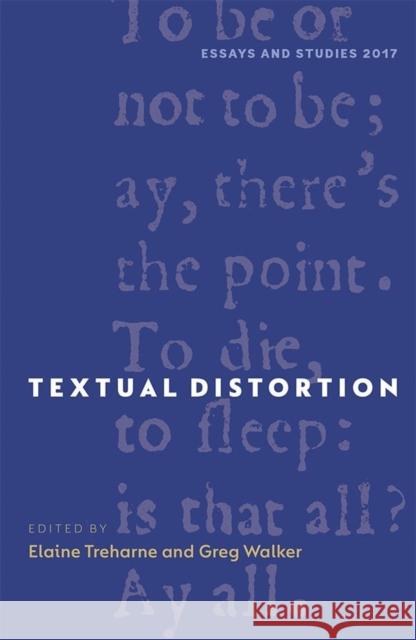Textual Distortion » książka
Textual Distortion
ISBN-13: 9781843844792 / Angielski / Twarda / 2017 / 188 str.
-Distortion- of any kind, including the textual, is nearly always understood as negative: it can be defined as perversion, unnoticed alteration, impairment, caricature, twisting, corruption, misrepresentation, deviation. It might be said to create a form of the original (factual, true, authentic, real) that is not transubstantive as such, but warped, misshapen, skewed, shrunken, amplified, or simulated. In textual studies, one might argue, in fact, that all transmission is distorted - either through mediation, appropriation, colonisation, digitisation, or through misunderstanding, lack of contextualisation, or pretence. What results from distortion? Need textual distortion always be a negative phenomenon? How does distortion affect producers, transmitters and receivers of texts? What effect does distortion have on the intentionality, materiality and functionality, not to say the cultural, intellectual and market value of all textual objects? The essays in this volume seek to address these questions, focusing on a broad range of literature, language, and textual objects. The topics include Anglo-Saxon manuscripts, Reformation documents and poems, Global Shakespeare, the Oxford English Dictionary, Native American spiritual objects, and digital tools for re-envisioning textual relationships. Contributors: Matt Aiello, Emma Cayley, Aaron Kelly, Dan Kim, Sarah Ogilvie, Timothy Powell, Giovanni Scorchioni, Greg Walker, Claude Willan.











